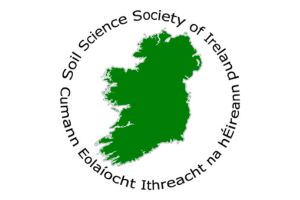Day 1: 6 December 2023
Jump to: Grant Workshop | Industry Workshop | Networking Dinner | BSSS Drop-In Session | Sponsorship
The conference is taking place at the Assembly Buildings Conference Centre
To view the book of abstracts, click here
Walking Trail: 8:15am - 10:30am
 Walking Trail Around Belfast city centre
Walking Trail Around Belfast city centre
8:15am – 10:30am
If you arrive early and want to meet with the committee and fellow delegates, why not join them on a treasure trail around Belfast city centre. If you would like to take part, please meet at the Assembly Buildings Conference Centre at 8:15am (to start at 8:30). The trail will finish back at the Assembly Buildings Conference Centre by 10:30am.
Registration and Poster Set-Up: 10:00am - 11:00am
![]() Registration and Poster Set-Up
Registration and Poster Set-Up
10:00am – 11:00am
Sign in and meet all the delegates at the Assembly Buildings Conference Centre
Collect your poster (if applicable) and set up on the relevant poster board in the Assembly Hall.
Introduction and Opening Keynote: 11:00am - 11:30am
Introduction to the Conference
11:00am – 11:30am
Saoirse Tracy – President of the Soil Science Society of Ireland, and Assistant Professor in Applied Plant Biology at University College Dublin.
Speaker bio
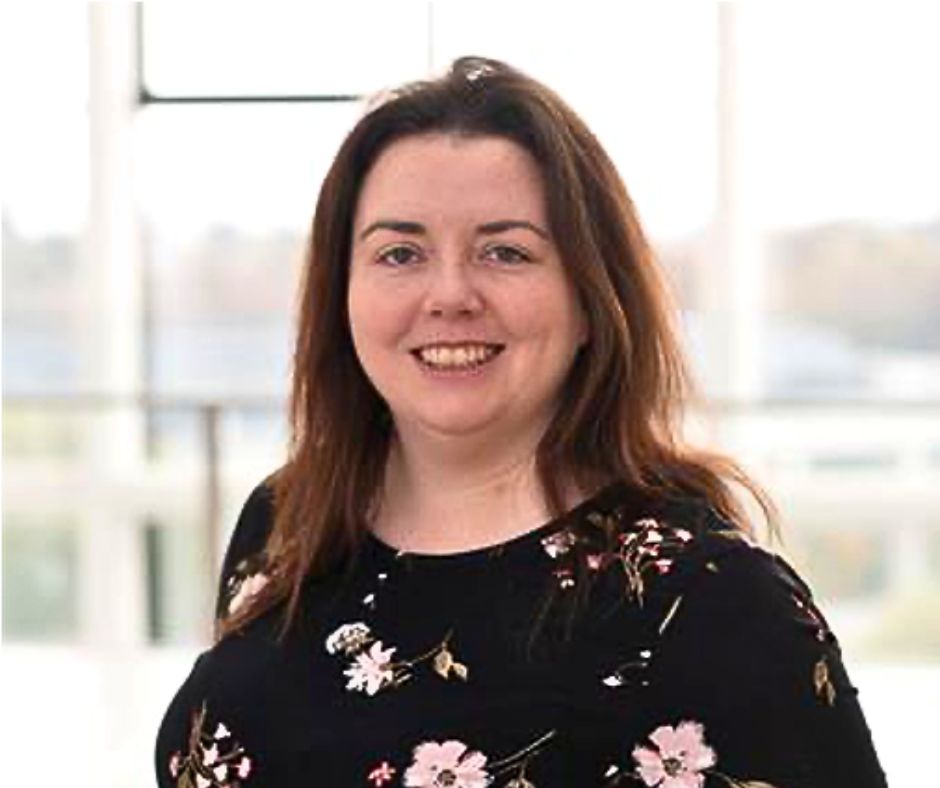 Dr. Saoirse Tracy is Assistant Professor in Applied Plant Biology in the School of Agriculture and Food Science. She is a soil and plant scientist and her research centres around understanding plant root and soil interactions. Her research interests include using X-ray Computed Tomography (CT) to understand the response of roots to the soil physical environment.
Dr. Saoirse Tracy is Assistant Professor in Applied Plant Biology in the School of Agriculture and Food Science. She is a soil and plant scientist and her research centres around understanding plant root and soil interactions. Her research interests include using X-ray Computed Tomography (CT) to understand the response of roots to the soil physical environment.
She has been Assistant Professor at University College Dublin since 2015, prior to that she studied and worked at the University of Nottingham. She is Programme Director for the Taught Masters Programme in Environmental Resource Management. In 2019, she was appointed as the President of the Soil Science Society of Ireland.
Workshop 1: 11:30am - 12:30pm
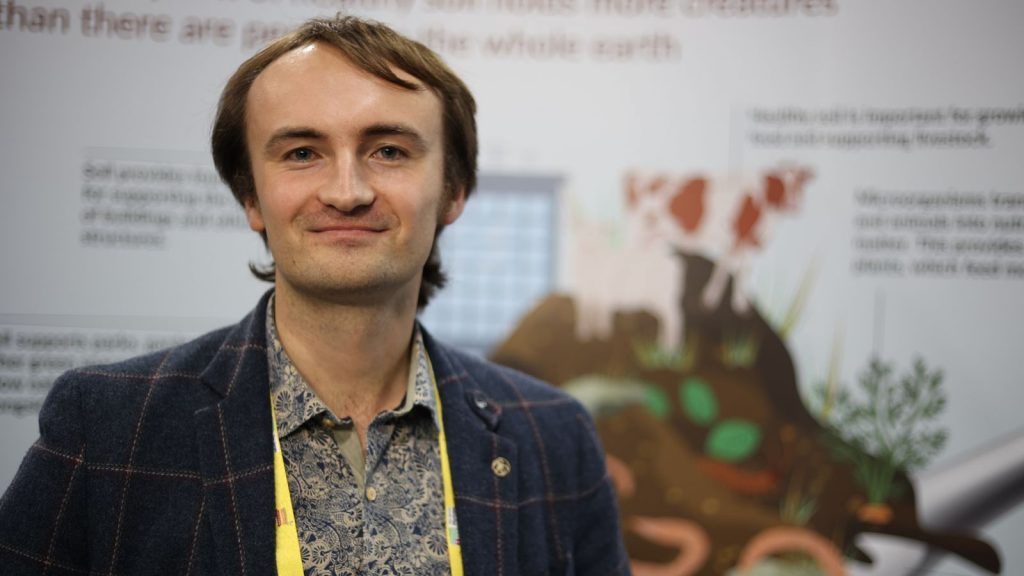 Workshop 1: Finding (and winning) funding as an ECR
Workshop 1: Finding (and winning) funding as an ECR
11:30am – 12:30pm
Dan Evans – Lecturer in Soil Formation at Cranfield University.
Workshop Details
In this workshop, former BSSS ECR Chair, Dan Evans, will share the tips and tricks he’s learnt about finding and securing research funding as an Early Career Researcher. He’ll outline a vast range of different types of funding, from exchange grants to Fellowships, effective approaches to writing research proposals, and answer some frequently asked questions.
Speaker Bio
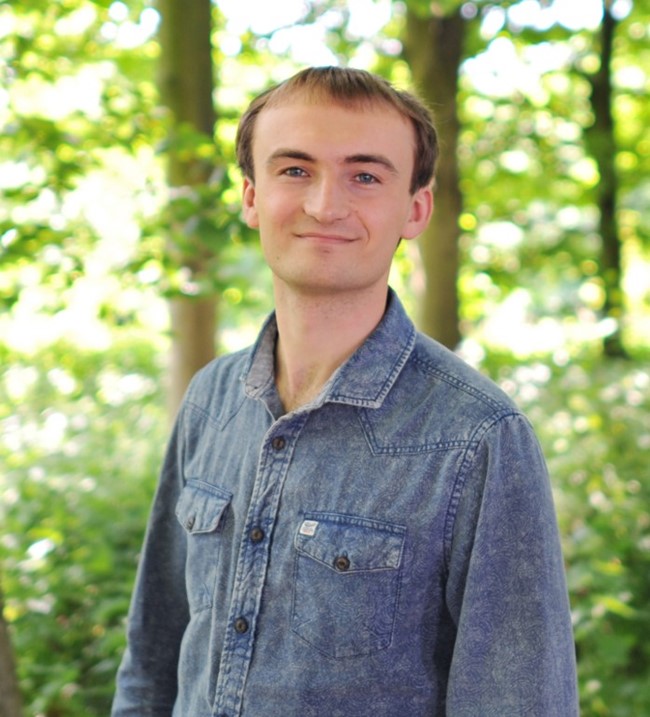
Dr Dan Evans is a Lecturer in Soil Formation at Cranfield University. He leads both fundamental and applied research on soil formation and the parent materials from which soil is formed.
His work focuses on the interactions between parent materials and soils, how soil parent materials support soil ecosystem services, and the natural and anthropogenic threats to the parent material zone. He also studies how soil formation can be accelerated, such as the manufacturing of new soils for urban green infrastructure.
Dan is the Deputy Early Career Scientist representative for the European Geoscience Union, representing Early Career Scientists from more than 20 geoscience disciplines across the Union. He’s an Associate Editor for the European Journal of Soil Science and is a member of multiple EU Soil Observatory working groups including soil erosion, soil pollution, and organic carbon.
Lunch and Poster Session 1: 12:30pm – 1:30pm
![]() LUNCH AND POSTER PRESENTATION SESSION 1
LUNCH AND POSTER PRESENTATION SESSION 1
12:30pm – 1:30pm
Soil Health, Nutrient Management, and Water Management Posters
Oral Presentation Session 1: 1:30pm – 3:30pm
![]() ORAL PRESENTATION SESSION 1
ORAL PRESENTATION SESSION 1
1:30pm – 3:30pm (inc. Q&A)
Soil Health abstracts
Soil Health and Other Category Abstracts
- Urmi Ghosh – Application of computational approaches in soil-mineralogy to understand mineral-nutrient relationship
- Katie Martin – Short and long-term effects of slurry applications on earthworm populations
- John Nunns – Effect of wheat roots and bulk density on soil microbial properties and pesticide degradation
- Jessica Brook – Broad scale multiple year temporal changes in the physical structure of agricultural soils across three catchments in Scotland
- Cristina Mcbride-Serrano – Can increased cover crop diversity bind more soil in the field?
- Aileen Lynch – Novel genes associated with insoluble phosphorus can be utilised to assess soil health
- Tinashe Mawodza – Soil management in the construction of the HS2 railway line
Break: 3:30pm - 4:00pm
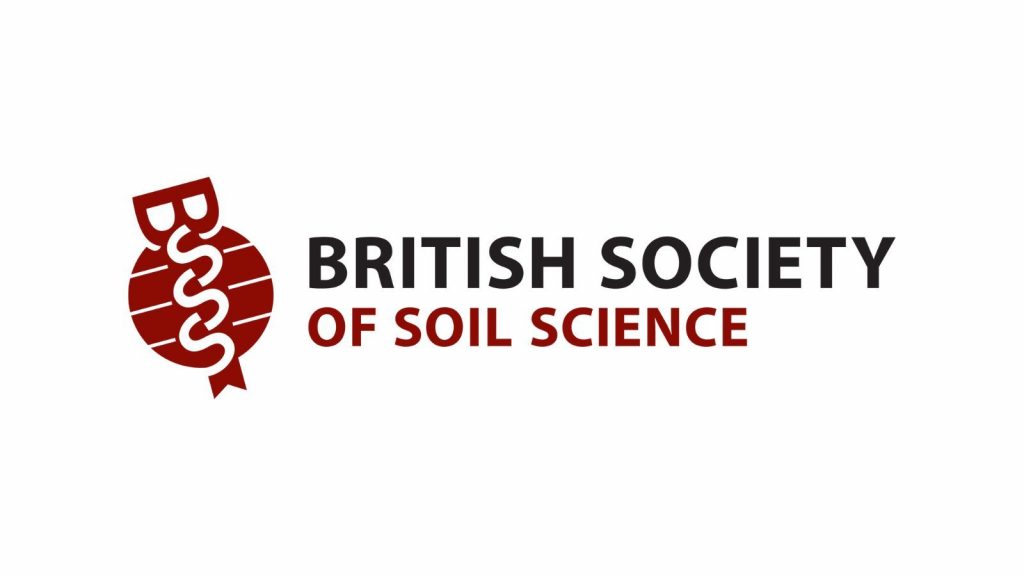
Break and Refreshments
3:30pm – 4:00pm
Meet the BSSS Early Careers’ Committee
Workshop 2: 4:00pm - 5:00pm
 Workshop 2: Soil Science in Industry
Workshop 2: Soil Science in Industry
4:00pm – 5:00pm
Jess Potts – Soil and Environmental Specialist at Arcadis.
Sponsored by Arcadis
Workshop Details
As early career researchers, you possess a unique set of skills, knowledge and analytical thinking that make you highly valuable in the field of consultancy, and across the wider industry. This workshop has been tailored to provide you with valuable insights and guidance on how to kickstart your journey outside of academia. Whether you have just embarked on your research career or are considering a transition, we will work with you to equip you with the necessary tools and strategies to successfully navigate this dynamic industry. Prepare to explore the diverse array of opportunities, learn how to translate your skills and knowledge, and gain the confidence to make your mark in the world. We will hear from established industry professionals, examine their pathways, and use this to inspire ours, examining the skills and knowledge we have developed along the way and how we can leverage our unique experiences to really make ourselves stand out.
This session will be run by early career consultants from Arcadis, drawing upon personal skills and experiences in navigating this exciting world beyond academia.
Speaker Bio
Summary: 5:00pm - 5:30pm

SUMMARY
5:00pm – 5:30pm
Summary of Day 1 from the British Society of Soil Science
Conference Dinner: 7:30pm - 9:30pm

Conference Dinner – Ramada Hotel Restaurant
7:30pm – 9:30pm
We will be holding our conference dinner in the Ramada hotel restaurant and this will be a great opportunity to network further in a relaxed environment after the main conference programme.
This will be an informal buffet dinner and all attendees are invited to join. We are looking for new members to join our Early Careers’ Committee in 2024 and if this is of interest, it will be an ideal opportunity to speak to the current committee about this.
Day 2: 7 December 2023
Welcome: 8:30am - 9:00am
 Welcome and Refreshments
Welcome and Refreshments
8:30am – 9:00am
Welcome and Opening Keynote: 9:00am - 9:30am
 Welcome and Opening Keynote
Welcome and Opening Keynote
9:00am – 9:30am
Paul Hallett – President-Elect of the British Society of Soil Science, and Chair in Soil Physics at the University of Aberdeen.
Speaker Bio

Professor Paul Hallett is President-Elect of the British Society of Soil Science. He is a Soil Physicist at the University of Aberdeen, where he is tutor of the MSc Soil Science and coordinates postgraduate research training of over 150 PhD students in the School of Biological Sciences.
His research explores solutions to food and environmental security, mainly focussed on the interactions between plants, microorganisms and the physical behaviour of soil. His work spans from understanding the fundamental processes driving changes in soil physical properties by biology, through to applied research examining soil degradation and the underlying causes.
Recent projects have studied the capacity of different plant root traits to physically engineer soil, crop selection impact on hydrological cycling in southern China, the better use of organic resources in Ethiopia to improve soils and their capacity to produce food, and microplastic pollution of soils.
Session Details
How it started? How it’s going? 25 years of soil water repellency research
About 25 years ago I attended the forerunner of the BSSS Early Careers’ Conference to speak on my new research on soil water repellency. I had just started my first permanent position at the Scottish Crop Research Institute, entering the emerging discipline of soil biophysics. When exploring bioclogging of soil by bacteria and fungi, I noticed that some treatments wetted quite slowly but were not severely hydrophobic. At the time, a common perception in soil physics was that most agricultural soils were totally wettable, so I got dismissed as a soil mechanics guy entering soil water physics when I suggested water repellency at meetings.
From a search of the literature, I found a simple approach to measure ‘subcritical soil water repellency’, which I extended using a small-scale aggregate infiltrometer developed by Peter Leeds-Harrison and Edward Youngs, two soil physics greats and BSSS advocates from Cranfield University. The first study found that water sorptivity (wetting rate) decreased with increasing applied nitrogen due to water repellency in both field and laboratory experiments on ploughed arable soil. The nitrogen increased microbial activity, so we postulated that exopolymeric substances provided a hydrophobic coating on soil aggregate surfaces and macropore walls. Subsequent research found that different exopolymeric substances decreased soil wettability and increased mechanical stability, but there were large differences between compounds produced by either plants, fungi or bateria. Other research exploring tillage practices observed diminished water repellency of soil aggregates with ploughing, suggesting that reduced tillage may stabilise soils by decreasing the slaking stress of rapid wetting. To reach a soil science audience, I published two of these studies in EJSS, and they remain my top 2 most cited research articles.
Twenty-five years later, this early research has defined my career. I am still seeking small-scale approaches to measure soil biophysical properties, aiming to disentangle processes that drive soil structure dynamics and stability. Soil in the rhizosphere, for instance, was found to be more repellent than surrounding soil, but the effects were attenuated by the presence of root hairs. This research is exploring a new generation of crops that have root traits to positively impact soils and resource use efficiency. Direct links have been found between water repellency and soil aggregate stability, helping to understand a major process in soil stabilisation. The most recent research is combining micro-scale measurements of soil physical structure by X-Ray CT imaging with small-scale hydrological and mechanical measurements. Four of the current PhD students in my group are exploring how plant species diversity (Annette Raffan), carbon (Abdul Walid Salik), root exudates (Sean Graham) and carbon priming (Luke Harrold), affect soil water repellency and structure. A MSCA Fellow (Nasrollah Sepehrnia) found that microplastic pollution produces a water repellent ‘plastisphere’. You will hear from some of them at this meeting, and another generation of soil scientists may hear from them again in 25 years’ time.
Oral Presentation Session 2: 9:30am – 11:30am
![]() ORAL PRESENTATION SESSION 2
ORAL PRESENTATION SESSION 2
9:30am – 11:30am (inc. Q&A)
Soil Carbon abstracts
Soil Carbon Abstracts
- Olivia Azevedo – The long-term effects of woodland creation on soil structure and the fate of carbon
- Mollie Frost – Calculating the Carbon Sequestration Potential of Cement Bypass Dust as an Agricultural Soil Amendment.
- Ana Prada Barrio – Effects of traffic and tillage management systems on soil organic carbon dynamics
- Catriona Willoughby – Leys, organic amendments and reduced tillage lead to carbon accumulation in farmland soils: a rapid evidence assessment
- Sharon Chebet – Rapid increase in soil organic carbon and structural stability following conversion to semi-natural grassland irrespective of management history
- Mary Cvetkovic-Jones – Savanna soil carbon: interactive impacts of fire and climate on soil respiration
- Muhammad Mohsin Abrar – Long-term manure application enhances organic carbon and nitrogen stocks in Mollisol subsoil
Break: 11:30am - 12:00pm

Break and Refreshments
11:30am – 12:00pm
BSSS Drop-In Session: 12:00pm - 1:00pm
 BSSS Membership and Journals Session
BSSS Membership and Journals Session
12:00pm – 1:00pm
Natalie Coles – Operations & Business Development Manager at the British Society of Soil Science
Session Details
How can further training and professional body registration help your career journey?
Are you keen to become a future Full Member and Chartered Scientist?
Join the BSSS Team at our drop-in session to find out more and ask any questions you may have!
Speaker Bio

Natalie Coles joined the BSSS team in September 2020 as Senior Administrative Assistant.
She is now Operations and Business Development Manager, and is responsible for membership applications and renewals, events and accounting.
Lunch and Poster Session 2: 1:00pm - 2:00pm
![]() LUNCH AND POSTER PRESENTATION SESSION 2
LUNCH AND POSTER PRESENTATION SESSION 2
1:00pm – 2:00pm
Soil Carbon, Technology and Innovation, and Other Abstracts Posters
Oral Presentation Session 3: 2:00pm - 3:30pm
ORAL PRESENTATION SESSION 3
2:00pm – 3:30pm (inc. Q&A)
Nutrient Management, and Technology and Innovation abstracts
Nutrient Management, and Technology and Innovation Abstracts
- Yusra Zireeni – Effect of slurry acidification on the uptake of S, P and N by plants
- Longnan Shi – Prediction of soil bulk density in agricultural soils using mid-infrared spectroscopy
- Jennifer Wardle – What links soil nutrients to the Hitchhikers Guide to the Galaxy?
- William O’Neill – COM-VITE: A Sustainable Recovered Urban Waste Composite for Soil Conditioning in Silviculture
- Hannah Walling – Improved soil phosphorus management is required to optimise soybean biological nitrogen fixation
- Patti Roche – The influence of soil structure on phosphorus dynamics
Closing Remarks and Prize Ceremony: 3:30pm - 4:30pm
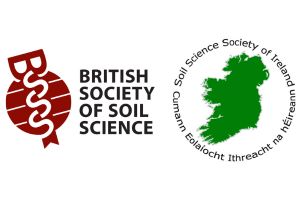 CLOSING REMARKS and Prize ceremony
CLOSING REMARKS and Prize ceremony
3:30pm – 4:30pm
We will wrap up the conference with some closing and also the eagerly anticipated prize ceremony for the best presentations.
Sponsorship
We have launched exciting sponsorship packages for our 2023 Annual Conference and Early Careers’ Conference, so if you are interested in supporting the Society and would like learn more, please click here.
 We are delighted to be working in partnership with VisitBelfast in the delivery of the event, and would like to thank them for their continued support and expertise.
We are delighted to be working in partnership with VisitBelfast in the delivery of the event, and would like to thank them for their continued support and expertise.

Thank you to Arcadis which is sponsoring our Early Careers’ Conference, and is also hosting a workshop at the end of the first day of the event.

Thank you to Soil Benchmark who is also sponsoring the conference. Set up by BSSS members, Tom Scrope and Ben Butler; Soil Benchmark provides data driven tools to farmers’ existing information to uncover practical insights that improve the health of their soils.

